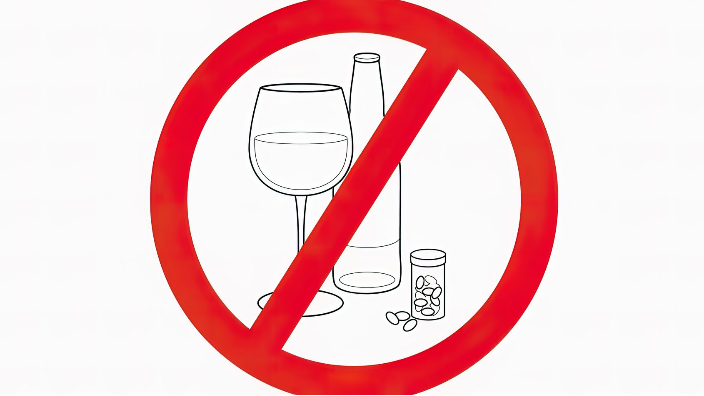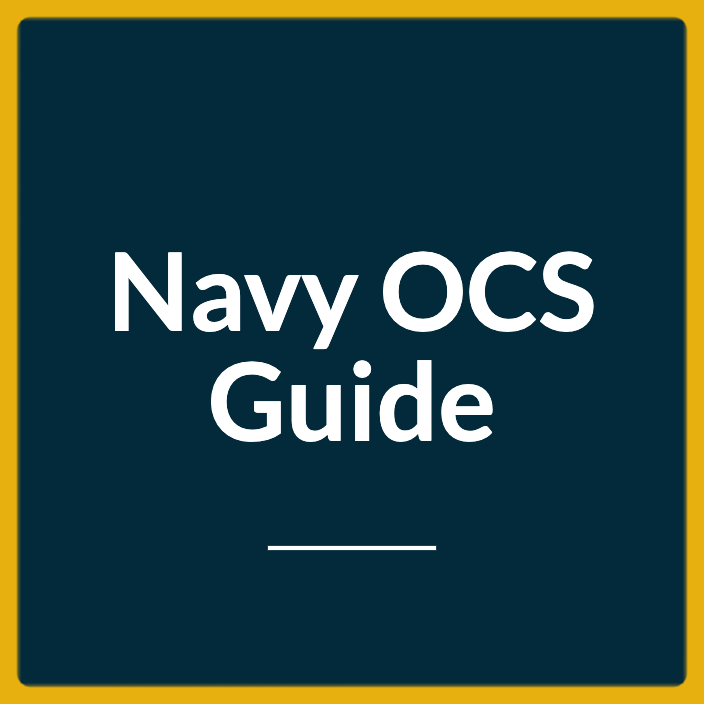Last Updated on March 4, 2024
As someone considering a role as a Navy officer, you already understand the gravity of the responsibilities that come with the uniform.
With great power comes not just great responsibility, but also a comprehensive set of guidelines, particularly for alcohol consumption.
This article aims to give you an insider look at the Navy Alcohol Policy, offering clarity and in-depth knowledge on what’s allowed, what’s frowned upon, and what could end your career in an instant.
Understanding the Importance of the Navy Alcohol Policy

As a commissioned officer of the Navy, you’ll be expected to adhere to the Navy Alcohol Policy.
It’s important you understand this policy and remain compliant, as failure to do so can cause disciplinary action or even termination.
The Navy Alcohol Policy serves as a reminder of the responsibilities that come with your position and that alcohol consumption should be done responsibly.
The Weight of Responsibility
Being a Navy officer isn’t merely a job; it’s a commitment to safeguarding a nation and its people. In such a role, ethical conduct isn’t optional—it’s mandatory.
A lapse in judgment, particularly where alcohol is involved, has the potential to undermine team integrity, jeopardize missions, and tarnish the reputation of the Navy at large.
You’ll be held accountable not only for your well-being but also for that of the men and women under your command.
These heightened stakes explain why the Navy Alcohol Policy is so stringent and why it’s essential for officers to fully understand and comply with it.
Objectives of the Policy
The Navy Alcohol Policy serves three primary objectives:
- Promote readiness and performance: Alcohol misuse can lead to decreased operational effectiveness. The policy aims to ensure officers are always mission-ready.
- Safeguard health and welfare: Alcohol abuse can lead to many health issues, which affect an officer’s ability to serve effectively.
- Uphold good order and discipline: Alcohol can be a significant disruptor in maintaining the stringent discipline expected in the military environment.
The Dos and Don’ts
Legal Drinking Age
Regardless of your rank or where you’re stationed, the Navy adheres strictly to U.S. federal law concerning the legal drinking age, which is 21.
Even if local laws in another country permit drinking at a younger age, as a Navy officer, you’re obligated to follow American regulations.
Permissible Drinking Hours
Drinking is only allowed during off-duty hours. These hours can vary depending on your base and current mission responsibilities.
Importantly, the Navy stipulates officers must not consume alcohol within eight hours of reporting for duty. This eight-hour window is crucial for ensuring you’re fully alert and operational.
Drinking On Base
Alcohol consumption on a Navy installation is limited to designated areas. These typically include mess halls, personal quarters, and allowed recreational facilities.
Consuming alcohol in unauthorized areas could lead to disciplinary action.
Off-limits Scenarios
- Uniform Restrictions: You may not consume alcohol while in uniform, except in very specific circumstances, such as an official function where alcohol consumption is explicitly permitted.
- Firearm Handling: Consuming alcohol while carrying a firearm is a strict no-no, with potential legal and disciplinary repercussions.
- Medications: Certain medications have adverse interactions with alcohol. Combining the two is against Navy policy and could lead to immediate disciplinary action.
The Navy’s BAC (Blood Alcohol Concentration) Limits
Navy policy outlines two important BAC limits:
- Operating Machinery: The Navy has a BAC limit of 0.04 percent when you are operating any machinery, including driving.
- Off Duty: While there isn’t a set BAC limit for officers when off duty, public drunkenness, or disruptive behavior linked to alcohol consumption can cause disciplinary action.
Penalties for Violating Navy Alcohol Policy
Minor Offenses
Even a minor infraction like drinking in an unauthorized area can cause non-judicial punishment. This could be as lenient as loss of leave or as serious as additional duties.
These punishments are more than mere slaps on the wrist; they can significantly derail your career advancement.
Those caught drinking underage have similar punishments. If an individual is caught with or consuming alcohol while under the legal drinking age, they may face a reduction in rank, forfeiture of pay, extra duties, and/or correctional custody time.
For those caught providing alcohol to minors, especially if it is done on a military installation, the punishment could be even more severe.
Besides the potential penalties outlined above, any alcohol incident can cause a review of a Navy officer’s character. This review could lead to a less desirable discharge or even administrative separation from the military.
Major Offenses
Major violations, such as DUI or assault while under the influence, can be court-martialed. This could cause a dishonorable discharge, imprisonment, or both, effectively putting an abrupt end to your military career and significantly affecting your civilian life.
The Navy has a zero-tolerance policy for alcohol-related offenses.
If you are found guilty of violating military law or having an unauthorized possession, use, or sale of alcohol while on active duty, you could face a special court-martial.
This is the most serious court action in the Navy and it can cause heavy fines and jail time.
Besides criminal charges, military personnel found guilty of major offenses may also face administrative action.
This could include reassignment to a different duty station, loss of pay and/or rank reduction, or even discharge from the Navy.
The Zero-Tolerance Policy
The Navy has a zero-tolerance policy toward the use of illicit drugs, which extends to abusing prescription medications.
Any trace found in your system could cause immediate discharge and could even lead to criminal charges.
Best Practices for Alcohol Consumption for Navy Officers
Know Your Limits
Moderation is key. Understanding your alcohol limits ensures that you never find yourself in a compromising situation that could impact your career or the lives of those around you.
As a member of the United States Navy, you must understand the importance of knowing and respecting your limits with alcohol consumption.
The Navy has strict policies in place for the responsible use of alcohol, and all personnel are expected to abide by these regulations.
The Navy’s policy states that no service member shall consume alcoholic beverages while in a duty status, or while on board a military installation or Navy owned or leased facility.
Service members should also know their off-duty behavior reflects upon their rank and the reputation of their unit.
The Buddy System
Having a “drinking buddy” who can hold you accountable is a good idea. This person can help make sure you don’t cross any lines and can assist if you veer into dangerous territory.
The buddy system is an important tool for ensuring that sailors stay within their limitations while drinking.
A designated buddy can help keep track of how much a sailor drinks, remind them to make smart decisions, and even step in if necessary to prevent the sailor from putting themselves or others in danger.
Alcohol Education and Counseling
Use the resources available to you. The Navy offers programs designed to educate officers about responsible drinking and also provides counseling services for those struggling with alcohol use.
Alcohol education and counseling are important elements of the Navy’s alcohol policy. The Navy provides its members with resources to help them make informed, responsible decisions about drinking.
The Navy offers a variety of educational programs designed to inform officers about the risks associated with alcohol use and abuse.
These include modules on topics such as the effects of alcohol on physical health, relationships, work performance, and legal issues.
In addition, substance use disorder counselors are available to help members assess their drinking patterns and provide guidance on how to drink responsibly.
The Navy also provides resources for those struggling with alcohol use disorders (AUDs), such as the Substance Abuse Rehabilitation Program (SARP). Treatment programs are available to support members through early recovery, and there is an extensive network of support groups to offer help throughout the recovery process.
With alcohol, the Navy’s goal is to ensure that all personnel understand the risks and know how to drink responsibly.
Navy officers should know the potential consequences of overindulgence and are expected to practice self-control when consuming alcohol.
Reporting Violations
As an officer, you have an ethical responsibility to report any violations of the Navy Alcohol Policy that you witness.
Failure to report could not only result in disciplinary action against you, but also compromise the safety and effectiveness of your unit.
If you notice any violations of the Navy Alcohol Policy, you must immediately report them to your chain of command.
This includes reporting any drinking or possession of alcohol by personnel under 21 years old. If appropriate, you may also report any observed violations directly to an Installation Commander or other designated authority.
When reporting a violation, provide as much detail as possible and be prepared to testify if needed.
All reports of violations should be treated with the utmost confidentiality to ensure that personnel are not retaliated against for reporting misconduct.
Final Thoughts
Understanding the Navy Alcohol Policy is not just about navigating a rule book. It’s about fully grasping the implications of your actions in a role that is far greater than yourself.
By adhering to these guidelines, you’re not just keeping your career intact; you’re also maintaining the integrity of a military force that’s revered and respected worldwide.
The policy is there to cultivate an environment where discipline, safety, and effectiveness are the cornerstones.
So, here’s to making informed choices and to a fulfilling career built on the tenets of responsibility and honor. Cheers!


